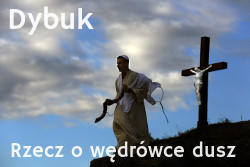DOX (European Documentary Film Magazine) o 50. Krakowskim Festiwalu Filmowym
2010-09-08
The documentary on the Polish television market in 2010 - the keynote by Krzysztof Kopczynski presented at the conference "Virtually Yours!" at the 50th Cracow Film Festival
In Directing the Documentary, one of the world’s best known textbooks on the art of the documentary by Michael Rabiger, we read: “For better or for worse, the ever-insecure documentary maker depended on the approval and good will of television companies for survival. Because documentaries tend to concentrate on problems, they remain a minority interest. Worse, individual films with individual lengths do not easily absorb into the cyclical patterns of an entertainment system that wants everything slotted into a series. Documentaries were often quite slow, made demands on the audience’s concentration, garnered low ratings, and from the position of an anxious television executive were always dispensable” .
A great virtue of the Polish documentary market after 1989 was its late adjustment to the principles laid down by Rabiger. The documentary film in Poland survived the 1990s thanks to the public TV channel TVP SA and waited until 2005 when a new cinematography law was passed, launching the Polish Film Institute and guaranteeing it annual funding of 30 million Euro. It’s worth remarking that work on the bill lasted well over ten years: which may indicate the effectiveness of its opponents. In the bill’s first draft, documentary films were not considered “films” and if things had remained like that would not have received any funding.
However, the Polish documentary film community rallied around and brought about a change in the relevant section. As a result, the Polish Film Institute has funded 200 documentaries (about 4 million Euro), including 37 international co-productions. It also supports distribution, documentary film festivals, workshops and publications.
As we are talking about the situation on the Polish documentary market midway through 2010, we should take into account factors which may not always be considered normal for the media market of a European country with a population of 38 million. I refer, in particular, to the situation of public television. Although it still commands around 40% of the viewing audience , its role as a producer of documentary films has changed diametrically. Owing to political games, TVP SA lost both its professional management and its income from the licence fee. It goes beyond the scope of my talk to discuss the reasons, but it’s worth mentioning that if every Pole paid the licence fee at its present level – around 5 Euro monthly to cover radio and TV – TVP SA and Polish Radio SA could be sure of a sum of around 500 million Euro annually, of which public television’s share would be around 375 million Euro. In 2010, it will receive approximately 50 million Euro from licence fees. This situation is particularly damaging to artistic televisual genres, including the documentary. Radical changes cannot be expected before 2012 and they will depend to a large extent on the results of the presidential elections set for July 2010.
I will present the predicted consequences of this state of affairs up until 2012 in eight points.
1. Many companies presently producing documentaries will go to the wall or will begin operating in other market areas, such as feature films or TV production. Many documentary filmmakers will leave the profession.
2. Over the course of the next two years, several dozen documentary films will be made in Poland funded solely from public funding from the Polish Film Institute and regional funds. However, the latter impose conditions which are difficult for documentary makers to meet. To be precise, any funding given by a region has to be spent in that same region. Two weeks ago I had the opportunity – as an expert of the Polish Film Institute – to evaluate seven funding applications for documentary film productions. Only one of them was supplied with a letter of intent from a commercial television channel without a fixed level of funding, i.e. without committing the channel to sign an agreement. None of the films was being planned as an international co-production.
3. The low level of funding and the obvious desire to economise on production costs means films will above all be cheap, will focus on local issues with fictitiously constructed budgets, will be technologically poor and uninteresting to foreign audiences.
4. The producers of these films, in order to give evidence of distribution in subsequent applications to the Polish Film Institute, will sell their films to TV channels in Poland for peanuts or give them away for nothing.
5. The role of commercial TV channels as producers of factual genre films And TV programmes will grow in importance. I have in mind: TVN, HBO, Planete, Canal Plus and private channels with smaller scope. The borders between documentaries and other factual genres, particularly reportage will continue to become blurred. The small numbers of makers of authentic creative documentaries will continue not being supported by the mediocre film critics and reviewers in Poland.
6. The chances for Polish producers in international co-productions and destined for international distribution will diminish. They will be without the possible effective support of Polish commissioning editors. Even though on the world market the following principle applies: If you want to be an effective seller you occasionally have to buy something.
7. The importance of workshops like Dragon Forum or the courses offered by the Andrzej Wajda Master School of Film Directing, training and conferences like this one – and also consultants – will continue to grow. If someone decides to work in the documentary market they will have to become a real professional – in the fields of promotion and distribution also – in order to survive.
8. Documentary makers will continue to search for hope in internet distribution, VOD and also in the growth of thematic TV channels, through the medium of digital terrestrial television .
Rabiger entitles one of the chapters of the book I quoted at the beginning “Recognising your artistic identity” . This is an extremely important skill in developing a documentary project. Paradoxically, the Polish documentary market may come out of the current crisis stronger. Because Polish documentary filmmakers will have to find their feet in the world of interactive media and learn to respect their audience. Also because they will finally have to create their own community identity and begin to effectively fight for their common interests.
I think it’s worth offering them support in their ventures in Poland and abroad. Of course, not out of pity, but only with a view to the benefits that could be gained in the dynamic media market in a country where miracles have happened more than once.




















